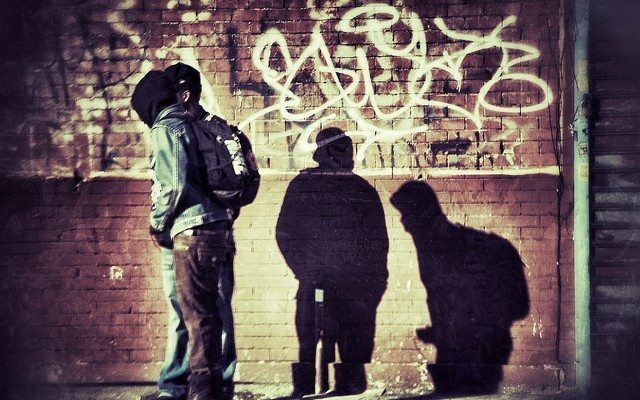
Crime
“Minor” Offenses? Trying Juveniles as Adults is on the Rise in the US
A slew of recent crimes committed by minors has prompted debate over whether or not they should be tried as adults in court. Earlier this year in Wisconsin, two preteen girls brutally stabbed their classmate in the name of a mythical being known as Slenderman. Due to the severity and the premeditated nature of their heinous act, the girls have been charged as adults. In a case this month, three Albuquerque teenagers brutally attacked and killed homeless men. Two of the perpetrators, aged 15 and 16, will likely be charged as adults.
The process by which a minor’s case is transferred to adult criminal court is called a waiver, because the judge “waives” the typical protections provided by juvenile court. Many protections afforded to juveniles are the same as those offered to adults. As held by the Supreme Court, these protections include advance notice of the charges, the right to counsel, the right to confront and cross-examine adverse witnesses, and the right to remain silent. Perhaps the most significant difference between juvenile and adult courts is that minors in court do not have the right to trial by a jury. This is in order to provide a more intimate and diagnostic experience for juveniles.
When Can Minors be Tried as Adults?
A multitude of factors can lead a minor to be tried in adult court. Most states do not have any age limit for charging minors as adults if they have committed a particularly serious crime such as murder. However, to be handed the death penalty, a juvenile must be 16 years old in 18 states, 17 in 5 states, and 18 in 15 states. According to fairsentencingofyouth.org, the cost to keep one minor in prison for life could educate 169 children for a year.
According to a report by the U.S. Department of Justice, it is estimated that as many as 250,000 youth annually are prosecuted as adults. The United States is the only country in which minors can receive life in prison. Currently, there are 2,570 minors serving life sentences without parole. Twenty-two juveniles, all aged 17, have received the death penalty in the United States since 1973. In Iraq, 46 minors received the death penalty between 1990 and 2009; however, Iraq’s numbers are a vast outlier, as only 17 juveniles in total were sentenced to death in every country besides the United States and Iraq.
Due to the rising crime rate among youths and the recent violent crimes committed by children, many states are working to lower the age at which juveniles can be tried as adults. Generally, there are five factors that can cause a minor to be charged as an adult. If the perpetrator has committed a serious crime, has a lengthy prior record, is an older teenager, did not improve with prior attempts at rehabilitation, or if future rehab attempts seem unrealistic, he or she may be tried as an adult.
If a judge or prosecutor in a juvenile case wishes to try the offender as an adult, the first step is to hold a waiver hearing. In this situation, the prosecutor must argue his or her case as to why the juvenile should be tried as an adult by providing probable cause that the minor committed the crime. Afterwards, the judge considers if the minor has a good chance to succeed at rehabilitation.
Occasionally, minors who are tried as adults receive greater sympathy from juries in adult criminal courts, which may seem favorable. However, a trial in adult court can lead to far more severe sentences, and even the death penalty or life in prison. Juveniles charged as adults can also end up in prisons as opposed to juvenile detention centers.
The Debate
Does doling out adult sentences to juveniles make a difference, though? Some studies claim that there is no evidence to date that doing so reduces criminal activity among minors.
Those in favor of trying minors as adults argue that a crime is a crime, and just because a child commits it does not impact the victim’s suffering. There is also the claim that sentencing minors to less-severe punishments for their actions will not deter them from future criminal activity. Not treating minors who commit serious crimes as responsible for their actions will, arguably, turn them into irresponsible adults as well.
Those against minors being tried in adult court believe that they lack the ability to fully comprehend the nature of their crimes. Yet while many argue that children cannot mentally plan and execute a crime and understand its consequences, the case of the Wisconsin teens disproves this thought. The two preteens spent substantial time plotting the murder and how to hide the evidence of their crime.
Of course, children are capable of committing very serious and violent offenses that can cause tremendous suffering,” she continued. “But children are also uniquely capable of growth and change, and a sentence that gives them no opportunity to show their capacity to change is a sentence that denies the differences between children and adults.
-Alison Parker, the U.S. director for the advocacy group Human Rights Watch
It is difficult to know how to properly punish underage criminals for their sometimes heinous crimes. At the moment, the trend leans in the direction of ensuring that they take responsibility for their actions by trying juveniles as adults.
—
Marisa Mostek (@MarisaJ44) loves globetrotting and writing, so she is living the dream by writing while living abroad in Japan and working as an English teacher. Marisa received her undergraduate degree from the University of Colorado in Boulder and a certificate in journalism from UCLA. Contact Marisa at staff@LawStreetMedia.com.
Featured Image Courtesy of [Rawle C. Jackman via Flickr]








Comments